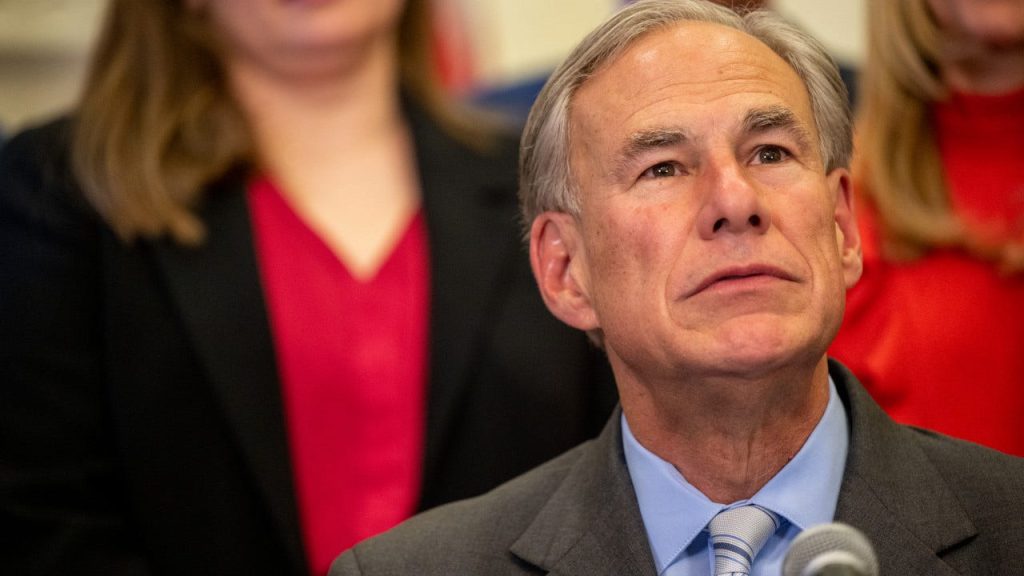Texas Governor Greg Abbott, a Republican, has officially signed a significant school choice bill into law that allocates $1 billion for a voucher program aimed at empowering parents to use public funds for private school tuition. This legislative move is the culmination of a long-standing effort by advocates of school choice in Texas, where earlier attempts met with opposition from some Democratic lawmakers and rural Republicans. The Texas Senate passed Senate Bill 2 along party lines, with key endorsements from various political figures, signaling a major shift in educational policy that may reshape public school funding in the state.
| Article Subheadings |
|---|
| 1) Impetus Behind the Bill’s Passage |
| 2) Key Supporters and Their Remarks |
| 3) Structure and Funding of the Voucher Program |
| 4) Reactions from Opponents of School Choice |
| 5) Implications for Texas Education Landscape |
Impetus Behind the Bill’s Passage
The foundation for Senate Bill 2 was laid over several years, during which school choice legislation experienced both success and failure in the Texas legislature. The surge of support for this bill was notably influenced by advocacy from prominent figures, including former President Donald Trump, who urged state lawmakers to push for its approval ahead of a critical vote. The Texas Senate’s approval on April 24, following a party-line vote of 19-12, showcased the deepening divide within the legislature regarding educational reforms. Advocates for school choice have argued that this legislation will finally allow parents the autonomy to select educational avenues that align better with their children’s needs, countering the traditional reliance on public schools which they deem inadequate.
Key Supporters and Their Remarks
Upon signing the bill, Governor Greg Abbott articulated his long-standing commitment to educational freedom, stating, “When I ran for reelection in 2022, I promised school choice for the families of Texas. Today, we deliver on that promise.” Alongside him were key supporters including Lieutenant Governor Dan Patrick and Senate Bill author Brandon Creighton. During the signing event, Creighton remarked on the limitless potential this bill promises Texas students, emphasizing the importance of empowering families with diverse educational choices. The presence of children, families, and school choice advocates at the event served to underscore the bill’s community impact.
Structure and Funding of the Voucher Program
The newly established voucher program is poised to provide substantial financial assistance to families. Starting in the upcoming school year, eligible families can receive up to $10,000 annually to assist with private school tuition or homeschooling expenses. Furthermore, families with children who have disabilities are set to receive even greater assistance, potentially as much as $30,000 per year. It’s important to note that the initial funding for this program is capped at $1 billion for the first year, which is expected to cover around 90,000 students. However, projections indicate that by 2030, the program’s cost could balloon to $4.5 billion annually, raising concerns about its long-term sustainability and impact on public school funding.
Reactions from Opponents of School Choice
Despite the enthusiasm from bill supporters, the legislation has drawn sharp criticism from various quarters, including Democrats and some rural Republicans. Critics argue that the voucher program could siphon vital resources away from public schools, which are already facing funding challenges. Kendall Scudder, chairman of the Texas Democratic Party, was vocal in condemning the bill, stating, “This bill is only best for the richest people in the state.” He further alleged that rural communities, which are already under-resourced, would bear the brunt of this policy shift. The crux of opposition lies in the fear that the voucher system will exacerbate existing inequalities in education, where affluent families can leverage these funds to gain access to better educational options while leaving underprivileged students behind in inadequately funded public schools.
Implications for Texas Education Landscape
The introduction of this expansive school choice program is set to dramatically transform the educational landscape in Texas. By joining the ranks of more than 30 other states with similar initiatives, Texas is poised to implement the largest voucher program in the nation. This move raises significant questions about the future of public education funding and how resources will be allocated in the years to come. The voucher program’s potential impact on student enrollment in traditional public schools could lead to a decrease in funding for these institutions, as they are primarily funded based on student headcount. With both supporters and opponents actively debating the future implications, it is evident that the discussion surrounding educational reform in Texas is far from settled.
| No. | Key Points |
|---|---|
| 1 | Governor Greg Abbott signed a $1 billion school choice bill into law. |
| 2 | The bill allows parents to use public funds for private school tuition. |
| 3 | Supporters argue it provides more educational options for families. |
| 4 | Opponents believe it will divert funds from public education. |
| 5 | The program could significantly reshape Texas’s educational funding landscape. |
Summary
The enactment of the school choice bill in Texas marks a pivotal moment in the ongoing debate on educational reform. With substantial financial allocations and a robust supporter base, the legislation is set to empower parents with greater choices regarding their children’s education. However, the ensuing discussions about its broader implications for public schooling underscore the complexities and challenges inherent in reshaping education policy in Texas.
Frequently Asked Questions
Question: What does the Texas school choice bill entail?
The Texas school choice bill allows parents to use public funds, up to $10,000 per year, for private school tuition or expenses related to homeschooling.
Question: Who are some of the main supporters of the bill?
Key supporters include Governor Greg Abbott, Lieutenant Governor Dan Patrick, and State Senator Brandon Creighton, among others.
Question: What are the concerns raised by opponents of the bill?
Opponents express concerns that the bill will divert financial resources from public schools, disproportionately affecting low-income and rural communities while benefiting affluent families.


